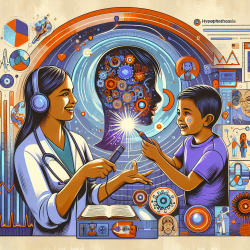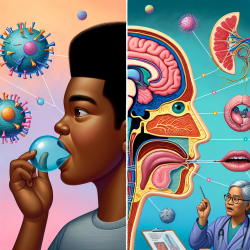The integration of artificial intelligence (AI) in mental health care (MHC) has shown great promise, especially in the wake of the COVID-19 pandemic. The study titled Public Trust in Artificial Intelligence Applications in Mental Health Care: Topic Modeling Analysis provides valuable insights into public trust in AI-based mental health applications. As practitioners, leveraging these insights can significantly improve the effectiveness of AI interventions in mental health.
According to the study, public trust in AI applications is generally high, with user reviews reflecting positive experiences. The study identified four dominant topics from user reviews: cheering people up, calming people down, helping figure out the inner world, and being an alternative or complement to a therapist. These topics were further classified into three themes: dispelling negative emotions, helping figure out the inner world, and being an alternative or complement to a therapist.
Key Findings
- Theme 1: Being an Alternative or Complement to a Therapist
Users often see AI apps as a valuable alternative or complement to traditional therapy. This is particularly useful in situations where human therapists are unavailable due to various constraints such as time, space, or budget. AI apps can provide immediate support, maintaining user privacy and reducing the stigma associated with mental health issues. - Theme 2: Helping Figure Out the Inner World
AI apps help users track their mental and emotional states, providing insights that can lead to better self-understanding and emotional control. This feature is particularly appreciated by users who seek to manage their mental health proactively. - Theme 3: Dispelling Negative Emotions
The most dominant theme, this encompasses the app's ability to calm users down and cheer them up. Users trust these apps to help mitigate stress, anxiety, and depression, often describing them as a 'friend' or 'listener' who provides non-judgmental support.
Implications for Practitioners
As practitioners, understanding these themes can help in the effective integration of AI apps into mental health care. Here are some actionable steps:
- Promote Trust: Ensure that the AI apps you recommend are reliable, accurate, and user-friendly. Trust is a crucial factor in the adoption of these technologies.
- Encourage Self-Tracking: Educate users on the benefits of tracking their mental health through these apps. Highlight how this can lead to better self-awareness and emotional regulation.
- Complement Human Therapy: Use AI apps as a supplement to traditional therapy. This can help bridge gaps between sessions and provide continuous support.
Challenges and Considerations
While the study highlights a high degree of public trust, there are areas for improvement. Some users expressed concerns about the reliability, engagement, and ease of use of certain apps. Addressing these issues can further enhance trust and efficacy.
In conclusion, AI applications in mental health care hold significant potential. By understanding and leveraging public trust, practitioners can enhance the effectiveness of these tools, ultimately leading to better mental health outcomes.
To read the original research paper, please follow this link: Public Trust in Artificial Intelligence Applications in Mental Health Care: Topic Modeling Analysis.










